|
Dear NAMI Friends and Family,
I think we've had enough rain for a while! Seeing the green appear on the West Slope of our county and the daffodils blooming is very welcome. Brimming reservoirs, streams, and rivers is a relief after so many dry years, at least it will be once the danger of flooding has passed. Our South Lake Tahoe folks will have to wait a while longer for the snow to disappear but are enjoying incredibly beautiful views of Lake Tahoe and an abundance of snow-play options.
Changes in season frequently brings more calls to NAMI. Many mental health disorders are very sensitive to changes in the day/night ratio and may affect sleeping patterns. Regular routines and open communication helps to navigate rough spots. The following article brings some helpful insight to some common concerns.
Family Survival Guide
By Chris Aiken, M.D. |
Feb. 06, 2017
"You seem like you're walking on eggshells," our family therapist told me with a wise nod. The image of cracked eggs under my bare feet was strangely comforting compared to what our family was really going through. We were living with mental illness, specifically bipolar disorder.
Psychiatrists don't know enough about how to help families in this situation. I should know-I'm a psychiatrist myself. When mental illness hit my home, I read everything I could. With some trial and (a lot of) error, I found a few principles worth leaning on when someone in your family has a mental illness:
Body Language
There's a paradox to mood disorders, like bipolar. They make the family anxious, and they make the patient misread that anxiety as anger. This is no one's fault-it's
due to a faulty switch in the part of the brain that reads faces (the
amygdala). The raised eyebrows, tense muscles and pitched voice of anxiety feel like an attack to someone going through mania or depression.
In contrast, body language that conveys warmth, acceptance and compassion has a healing effect on the brain. Calming interactions help stabilize the neuro-hormones that regulate mood. Families that make frequent empathetic comments have
higher recovery rates in bipolar. These can include simple empathetic statements like, "I see your point" or "I know what you mean," as well as more specific ones like "It must be hard to go through the motions each day when you're depressed."
These gentler emotions are hard to come by during a crisis, so if you're not feeling it you may need to practice acting the opposite of your emotions. Visualization can help. Just as an athlete imagines the ball going through the goal, picture someone who exudes warmth and calm. A favorite uncle, a minister or an actor like Judd Hirsch or Fred Rogers. You may feel like an actor yourself at first. As they say - "fake it 'til you make it."
Nothing's Wrong, Don't Fix It
Mental illness doesn't respond well to ordinary problem-solving. In fact, looking for problems to solve can make the situation worse. Families have much greater success when they give up all that poking and prodding. Look for the positive in your relative-like the progress they've made. Notice how they came to dinner, instead of reminding them that they stayed in bed all day. It helps to know the signs/symptoms of mental illness, but it doesn't help to point them out. Notice the healthy parts of your relative, because what you shine a light on is what will grow.
Of course, you'll still need to discuss problems, but reserve those for a regular, scheduled family meeting. Without this kind of structure, people can feel as though they are never safe from criticism and attack. During your meeting, use a neutral, "just-the-facts" tone. Avoid discussing people's intentions or how the illness affects you personally-those are hot-buttons that can quickly spiral into conflict when you're living with a mood disorder.
Don't Aim for Perfection-Just Improvement
If this advice sounds hard to follow, it's not. It's impossible. No one can get it right all the time. Fortunately, it's usually good enough just to adjust your ratio: Raise the warmth and positivity, and decrease the anger, criticism and tension. When you can't do that, insert a long pause by going into separate rooms. Make an agreement with your relative to stay apart if either of you get too hot-headed. Decide on a signal for this time-out, like hanging a scarf on the doorknob.
Know Your Limits
The message here is not to just accept everything, rather, it's that words alone won't solve your problems. Families need to plan ahead for dangerous or destructive behavior. This involves action, not words. Your relative experiencing mental illness should have a strong voice in the plan. Problems to anticipate include violence, suicidal behavior, substance abuse, overspending and fights that impact children in the home. Hospitalization is not the only solution. Consider temporarily living apart, locking away guns or extra medication and allowing family members to contact the treatment team or come to an appointment.
These tips are unlikely to lead to dramatic cures, but they do improve the lives of people experiencing bipolar, depression, and schizophrenia. It's a short list, and Dr. Jim Phelps and I have gathered a few more in our book,
Bipolar, Not So Much
.
The hard part is sticking to the basics, because grander problem-solving tends to backfire. Recovery is often slow, and it takes patience and some bravery to make it through. The world may accuse you of enabling the illness-and your relative may not thank you either-but you are doing what's best for your loved one. And don't forget to reward yourself along the way-you'll need a healthy dose of warmth and positivity as well.
Chris Aiken, MD, is a psychiatrist and co-author of "
Bipolar, Not So Much
" (WW Norton, 2017). His work focuses on natural and lifestyle methods that enhance recovery from depression and bipolar. As a psychiatrist, he founded the Mood Treatment Center and serves as an instructor at the Wake Forest University School of Medicine.
- See more at: http://www.nami.org/Blogs/NAMI-Blog/February-2017/Family-Survival-Guide#sthash.vm76j1iD.dpuf
Education is key in understanding and managing mental illness. To assist families, we are offering two signature classes beginning this month.
Also being offered on the West Slope is
NAMI Basics, our 6 week class for parents and caregivers of children and teens with emotional/behavioral difficulties or those diagnosed with mental illness such as ADHD, Anxiety, Bipolar Disorder, OCD and Depression.
Call Juline to register: 530 642-5659 [email protected]
===========================================================
What is prescription dr
ug abuse?
Prescription drug abuse
1
is the use of a medication without a prescription, in a way other than as prescribed, or for the experience or feelings elicited. According to several
national surveys, prescription medications, such as those
used to treat pain, attention deficit disorders, and anxiety,
are being abused at a rate second only to marijuana among illicit drug users.
===========================================================
 Psychosis Toolkit - Available now!
Psychosis Toolkit - Available now!
How to transform emerging psychosis
In the course of our work at NAMI, we see all too much heartbreak when people with emerging psychosis don't get the services they need. It doesn't have to be this way.
Congress now requires states to set aside 10% of their block grant for the proven array of First Episode Psychosis (FEP) services. But mere allocation of federal dollars won't fulfill the vision in which EVERY young person in need can get these life changing services.
We must all advocate effectively for high quality FEP service delivery.
Teachers/Coaches/Counselors/Mental-health-advocates/Parents/Caregivers -- we must all learn what a "quality" FEP program looks like. In South Lake Tahoe it is important to know where to obtain high quality services and supports.
FEP (First Episode Psychosis) is the wave of the future, changing the course of young lives.
New First Episode Psychosis (FEP) Tip sheets:
4.
For families: Encouraging People to Seek Help for Early Psychosis
Local resources for First Episode Programs include UC Davis Medical Center EDAPT Clinic in Sacramento. Click here EDAPT Clinic for information on eligibility, referrals, and assessment information.
El Dorado County Mental Health also has a limited First Episode Psychosis program funded by a grant and OPEN TO THE PUBLIC (not just Medi-Cal individuals) running on both slopes.
=============================================================
Stigma-Free Toolkit - Available Now!
Mental health conditions can have a huge impact on companies, from decreased productivity to lowered morale. Companies that join with NAMI in being stigmafree can begin to reverse this. A Stigmafree Company is one that makes stigmafree culture a priority and shows that it values employees' overall health, including emotional well-being and physical health. Being stigmafree creates the foundation for a culture of openness, acceptance, understanding and compassion. - Attention NON-PROFITS and FOR-PROFIT-BUSINESSES: Take the pledge; sign-up and get the free toolkit.
=============================================================
Saturday, 6-May-2017 is NAMIWalks Northern California.
We are seeking business sponsors in South Lake Tahoe and Western Slope
We will appreciate seeing at least 1 business from South Lake Tahoe and Western Slope on our T-shirts!
Make our volunteer's dreams come true. Sponsorship demonstrates strong support for the work we tirelessly do week over week through-out the year. Who will be our first business sponsor?
Sponsors donating $500 or more before mid-March will get their business logo/name on our walk T-shirt and listed on the famous NAMIWalks Northern California website viewed by over 1,000 people.
HELP US CRUSH STIGMA & WARM THE HEARTS OF YOUR NAMI VOLUNTEERS!
You can register as a "virtual walker" and donate to our affiliate's team walks without actually attending the walk. We welcome all and carpool will be available from South Lake Tahoe to the walk at William Land Park in Sacramento. Come join in the fun and show your support.
3 Ways to support us:
-
Business Sponsor
(
contact [email protected] to learn more or to request a sponsorship form)
Teams registered so-far:
The Dopamine Blockers (in South Lake Tahoe): Team Captain: Jeanne
Hope and Healing (West Slope): Team Captain: Jan
El Dorado County Walk Towards Wellness: Team Captain: Rhapsody
-
Buy a $5 Raffle Ticket: Raffle proceeds go directly to our local NAMI El Dorado County affiliate- raffle tickets will be on sale through your NAMI Family Support facilitator beginning mid-February and concluding in April, 2017.
8 chances to win gift prizes from various vendors in denominations of $250, $200 (2 prizes) $100 (2 prizes), $50 (3 prizes) - you do not need to be present to win. Our NAMIWalks Northern California walk manager will ensure delivery of the prizes.
============================================================================
In the News
============================================================================
"I dare say there's probably not a family in America that doesn't have to deal with [mental illness] in some way or another, either at work, people you go to church with, people who live next door."
Sen. John Cornyn (R-TX)
The Reps are Back in Town: Make Your Voice Heard
By Jessica W. Hart |
Feb. 23, 2017
Congress is on break this week, which means Senators and Representatives are back home-but not on vacation. It's time to remind them that one in five of the constituents they'll encounter back home lives with a mental health condition.
Last year, Congress passed important mental health reforms to address the mental health crisis in our nation. But these reforms are in jeopardy if coverage is cut, which is a very real threat right now.
What's at Stake for Mental Health Care?
- The Affordable Care Act (ACA) provides life-saving mental health coverage so Americans get mental health treatment when they need it-helping them to stay in school, on the job and in recovery.
- Today, under the ACA, anyone can get health care coverage and no one can be denied because they have a mental health condition.
- Once a person is covered, the ACA provides safeguards to ensure that a person can't be dropped from their plan or turned down for renewal or charged more just because they have a mental health condition.
Medicaid also provides vital mental health coverage, but Congress is calling for changes to the Medicaid program to provide more "flexibility" that would result in deep reductions in funding over the next few years.
When members of Congress are back in town, the most effective way to make your voice heard is to go your local town hall meetings and speak up. Town hall meetings are where elected official can listen and respond to questions and concerns in a public forum. As a member of the mental health movement, this is where you can exercise your right as a citizen to speak with your representatives about the importance of quality, affordable mental health coverage. Let your elected officials know that you are paying attention to what is happening with mental health coverage in Washington, D.C.
How Can I Find a Town Hall Meeting?
First, find your members of Congress by going
here for the House and
here for the Senate. Then, go to your senators' and representative's websites to find out when their next town hall meeting is being held. Check under "events" or "contact." If you can't find a town hall meeting, email or call their offices and ask for information directly.
What Should I Say When I Get There?
Your story is powerful. Hearing from you about how the Affordable Care Act (ACA) or Medicaid has positively impacted your life can help shape the conversation around health coverage in America. Telling your story in a few sentences is easy. Here's how:
- Introduce yourself. My name is __________ and I am a constituent from {city}. I am a person living with a mental health condition or I am a family member of someone living with a mental health condition or I am a professional in the mental health field.
- Say how the ACA or Medicaid has positively impacted your life. The {ACA or Medicaid} has helped me live a better life. {Briefly describe how it has helped you or somebody you know. Review our "What's at Stake" fact sheet to learn more about aspects of the ACA or Medicaid that might benefit you.}
- Ask a question. {Senator or Representative}, how will you protect mental health coverage in insurance plans and Medicaid?
For example:
- My name is Lauren, and I am a constituent from Springfield. I'm 25 years old and I live with bipolar disorder. When I was first diagnosed, I had to drop out of college and I lost hope that I could have any kind of future. Now I get health care through Medicaid and it's helped me get medication I can afford and therapy so I can go back to school. How will you protect access to Medicaid for people like me who want to be productive members of the community?
- My name is Jose and I am a constituent from Springfield. I am a small business owner and I also have been hospitalized for depression. Before the Affordable Care Act was passed, insurance for someone like me-who is self-insured and has a pre-existing condition-was so expensive that I didn't have coverage for two years while my business got off the ground. With the Affordable Care Act, I now have options to buy coverage on the insurance marketplace and I can't be denied coverage for a pre-existing condition. How will you protect insurance coverage for people like me?
Tips on How to be Effective at a Town Hall Meeting
- Organize a group who cares about mental health to attend. With a group of even just a few people, there's a greater chance that you will have an opportunity to ask a mental health-related question. To be more visible, wear the same color, wear NAMI stickers or carry an #Act4MentalHealth sign.
- Stay nonpartisan. Mental illness does not discriminate based on gender, race, religion or political viewpoint. We are a nonpartisan grassroots mental health movement, with advocates of every political stripe. We are united to advance one cause: to build better lives for the millions of Americans affected by mental illness.
- Record the questions and answers. Ask someone in your group to videotape any mental health questions and responses. Share on social media and tag @NAMIAdvocacy on Twitter.
- Follow-up. If your members of Congress committed to support mental health, follow up with a thank you email, Tweet or Facebook post to their office. If they did not make a commitment, don't give up; keep asking for their support.
Can't Make a Town Hall Meeting?
=====================================================================================

The outpouring of support by the Bartholomew family (
Stephanie, Mark, and Chase) and friends in the community demonstrate great
empathy
and unified caring for a common mission of improving mental health services/supports/education. Thanks to this generous community support we will be hosting our next classes in South Lake Tahoe in honor of Trevor...a hero in his own right who has raised awareness on many levels. People are talking about mental health; they are coming forward sharing their own stories candidly. We are all grieving together. There are simply no words that can fully describe our condolences - a parent losing a child is not the natural order of things - nor is losing a brother or a friend so young.
==============================================================================================================
 A special THANK YOU to the Soroptomists of South Lake Tahoe. We appreciate the Peer Empowerment grant aimed at empowering a few select peers in South Lake Tahoe so that they in turn will empower, educate and inspire many others in our community. We are pursuing an additional grant to complete our Peer Empowerment objectives. Your support speaks volumes and we look forward to reporting the difference made by your support! A special THANK YOU to the Soroptomists of South Lake Tahoe. We appreciate the Peer Empowerment grant aimed at empowering a few select peers in South Lake Tahoe so that they in turn will empower, educate and inspire many others in our community. We are pursuing an additional grant to complete our Peer Empowerment objectives. Your support speaks volumes and we look forward to reporting the difference made by your support!
A special THANK YOU to the Clear-Creek Quilt Club who surprised our NAMI Family Support group members in SLT with a special Happy Valentine's random act of kindness. They made 10 quilts especially for our family members to choose from. What a special treat!
Thank you Joan, NAMI Family-to-Family graduate for thinking of us in making these quilts. Thank you Lori, NAMI Family-to-Family graduate for bringing pretty roses for all attendees in February.
=========================================================================================================
THE NAMI NATIONAL CONVENTION : Jun 28 - July 1, 2017 (early-bird discount registration ends 31-Mar)
Attending a NAMI national convention (held annually) is incredibly inspiring. This year's convention will be in Washington D.C.
The Convention will feature:
Attendee visit to Capitol Hill to advocate for mental health.
Top-notch researchers and clinicians providing information and tools to advance and sustain recovery from mental illness.
People living with a mental illness and their families providing their own important perspectives on recovery.
The country's keenest minds and savviest policymakers offering strategies and tactics to effectively advocate for changing the mental health system in our nation.
Abundant networking opportunities so we can learn from each other about how we can improve the lives of all people living with mental illness and their families.
Inspiration, innovation and an exhilarating four days in Washington, DC.
See more at
http://www.nami.org/convention
============================================================================================================================
El Dorado County Health & Human Services - Healthy Communities Strategic Plan
by Jan Melnicoe, NAMI El Dorado County President
As reported by Patricia Charles-Heathers of El Dorado County's department of Health & Human Services at the Feburary Mental Health Commission meeting, our county has begun working on the Countywide Strategic Goal of Healthy Communities. This exciting team with multiple partnering agencies (including NAMI) had their first meeting to address Objective #1 - Protect against adverse outcomes among children, adults, and senior citizens last month. The Healthy Communities Team will be meeting about every six weeks to continue the plan endorsed by Board of Supervisors last year. This plan will integrate services and include families directly. We will keep you updated on potentially significant changes on how services are delivered and received and are particularly excited to have families at the table.
Our Wellness Centers on the West Slope and South Lake Tahoe are moving towards a peer-run model. This will open up more opportunities for Peer leadership of various activity and supportive groups. Peer volunteers are excited about the opportunity and experience for leadership roles. It will not change the funding going towards the Wellness Centers or reduce paid positions.
============================================================================================================================
Important Information for our Families
============================================================================================================================
Is your loved one's in-patient hospital refusing to release medical records?
Have you followed their HIPPA confidentiality-release process in completing the request for medical records and are still being told "no, we don't do this"?
Then it is time to file a grievance with the State of California (AND contact your insurance provider to let them know this provider is not cooperating.)
You may also request a meeting with the attending psychiatrist and treatment team.
We encourage individuals and family caregivers (on behalf of their loved ones) to request copies of all medical records,
particularly from in-patient stays.
Loved one's over 18 need to sign a release of confidentiality using the provider's form/process. Some research has been published indicating that patients [or family caregivers] given their full medical records after release from an in-patient stay have 40% fewer re-admission rates within the first month. There is a special kind of recovery-empowerment that comes from knowing your rights and advocating for those that cannot advocate for themselves.
A hospital's use of an electronic data record that can be shared with the full treatment team including the primary care physician, therapists, social workers, and psychiatrist is a step in the right direction.
We have had a few families recently express concern about Fremont Hospital in the Bay Area not releasing in-patient medical records. Because there is a severe shortage of in-patient psychiatric hospital beds available - our loved ones may be treated by hospitals further away than optimal for family support. Your advocacy makes a difference.
by NAMI El Dorado County: Family-to-Family Instructor in South Lake Tahoe
===============================================================================================================
Language Matters - tips shared by Dr. Amador:
Tips from Dr. Xavier Amador in his 10th anniversary edition book and his recent recorded webinar.
Once you register the replay becomes available - it is not a high quality recording - but worth replaying as there are many tips. Our family used his tips and it strengthened our relationship and the recovery process.
NAMI El Dorado County member.
Do NOT Say:
- My loved one refuses to acknowledge he's mentally ill
- Denies he's mentally ill
- Won't admit
- Doesn't admit....
- Refuses to admit...(this is the worst offender)
This all reflects our loved ones have a choice that they are ill. We would never say "our loved ones won't admit they are hallucinating."
Do Say:
- My loved one cannot comprehend he is mentally ill
- Is unaware he is mentally ill
- Unable to see or understand he's ...
- Has anosognosia for his mental illness (which is an actual symptom in the DSM V)
================================================================================================================
In Need of a Crisis Line?
If you or your child needs information, resources or someone to talk to during difficult times, make a call or send a text to:
Don't Let Shame Interfere with Getting Help
If your child had a physical condition, you would seek medical help. Do the same for your child if they have a mental health condition. Find a mental health specialist who provides the right kind of therapy, is highly recommended and is someone your child connects with.
As your child grows, their mental health condition may change or evolve. Consider requesting a periodic assessment of their diagnosis. To identify the appropriate treatment, a good diagnosis is critical.
================================================================================================================
About CalABLE
For many people with disabilities, the fear of losing critical public benefits, coupled with the high cost of support expenses, has limited them from building financial security.
Until recently, individuals receiving federal benefits have been restricted in the amount of money they can save, essentially keeping them in poverty and preventing them from planning for the future. With the
Stephen Beck Jr. Achieving a Better Life Experience (ABLE) Act
, signed into federal law by President Obama, these thresholds are no longer an obstacle.
In 2015 Governor Brown signed the California ABLE Act into law. CalABLE allows qualified individuals with disabilities and their families to open tax-free savings accounts without the worry of losing vital government assistance. The law establishes a board that will administer the CalABLE savings program.
The CalABLE program in California will open up life-improving opportunities for people with disabilities and their families in much the same way California's ScholarShare 529 plans formed educational opportunities for the state's students.
Contributions to an ABLE account, currently limited to $14,000 per year, can be made by family, friends, or the beneficiary themselves. The account's earnings are allowed to accumulate tax-free, and the withdrawals, provided they are applied to qualifying disability expenses, are tax-free.
Read more about the CalABLE program by accessing our
Fact Sheet
.
Benefits
One of the largest benefits afforded by the ABLE Act is the ability to exclude certain assets from federal means-tested programs. As an example, in order for an individual to obtain Supplemental Security Income (SSI), the countable resources must be worth not more than $2,000 for an individual or $3,000 for a couple.
Savings held in an ABLE account, up to a $100,000 limit, are not counted against the $2,000 limit on personal assets for individuals to qualify for SSI and other public benefits.
In essence, the ABLE Act has increased the cap for countable assets from $2,000 to $100,000 for disabled individuals seeking eligibility for SSI.
Implementation
Internal Revenue Service (IRS) rules for determining program eligibility were finalized in November of 2015.
CalABLE received program funding in July of 2016 to begin development and implementation of the program. CalABLE hopes to make ABLE accounts available by summer 2017. To view the full implementation schedule, view
Phase I
and
Phase II
.
Program staff are currently in the process of ensuring that a vast coalition of stakeholders and impacted state, local and federal agencies are all involved in the development of this savings plan. Interested parties are encouraged to participate in the program design and implementation process; connect with us via
email
, our
ListServ
or on
Facebook
.
=======================================================================================================
WarmLine Family Resource Center
WarmLine provides resources & support (at no charge) to families of infants, children and youth with special needs and disabilities, birth to 26 years.
WarmLine is funded by the US Department of Education, Office of Special Education Programs as the Parent Training and Information Center (PTI) for children with disabilities 0-26 years in Region 5 (26 counties from Yolo County to the Oregon border) of Northern California. This funding gives WarmLine the means to provide more support and trainings to families on Special Education than ever before.
=======================================================================================================
In Home Supportive Services
Some of our NAMI families in El Dorado County have reported favorably about the quality of the IHSS program. They are paid by IHSS for basic services that helped their loved one live at home. NAMI families particularly those that have graduated NAMI Family-to-Family are proactive in interviewing IHSS caregiver candidates to help their loved one and work collaboratively on a successful caregiving model. Teamwork is dreamwork. Learn more about this program at:
==============================================================================================================
Disability Benefit Information
Sustainability Outreach Services and Only Kindness Community Resource Center - Rene Evans - Accredited Disability Representative in Placerville - (530) 876-6243 or (530) 344-1864 www.edcrc.org
TheSimpleDollar.com is a
comprehensive resource that helps people not only understand, but access social security disability benefits is available.
In the course of their research, it was found that most people who have become or already living with disabilities are not fully aware of the benefits and resources that are available to them. This guide will not only answer common questions like qualifications, application process, as well as a calculator that can help estimate monthly and annual benefits.
You can see the entire guide along with some of its features here:
================================================================================================================
Legal Services
Legal Services of Northern California
is a non-profit law firm that provides free legal assistance to eligible persons. They provide help in the following areas: housing (resolving problems with landlords and housing subsidies), public benefits (CalFresh, CalWORKs, General Assistance, etc.), Social Security, and health care (physical and mental health).
"Our health unit
may be able to help you get and keep health insurance, and deal with insurance premium and share of cost disputes, medical debt; coverage of medical treatment (procedures, medication, medical equipment, etc.), seeing doctors in a timely manner, and In-Home Supportive Services (IHSS)."
Persons who need help with a health care issue may receive assistance regardless of their income or assets if they meet other eligibility requirements. Persons needing help with other issues must have a low income. If you need help with a health care issue, call (888) 354-4474. If you need help with one of the other issues listed above, call (530) 823-7560.
================================================================================================================
Law Enforcement - continues to help our community
Law enforcement resources continuously help our loved ones. 
NAMI Families and Friends in El Dorado County continue to
sing high praise for law enforcement's participation in CIT training and the leadership team's focus on ensuring officers are trained in Crisis Intervention Training. Thank you for all you do for NAMI Families and the community.
Thank you!
The Placerville Police Department
is on
Facebook
El Dorado County Sheriff's department is on Facebook .
South Lake Tahoe police is on
Faceboo
k - A special thank you to Chief Uhler for his support in ensuring his officer's completed CIT Awareness training and planning more in-depth CIT training in 2017. 
=======================================================================================================
Lake Tahoe Unified School District - Proactive in early intervention
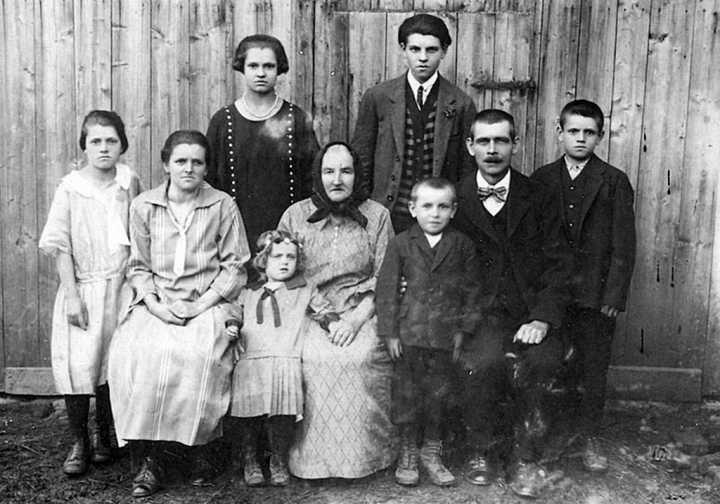 Thank you to the LTUSD school resource leaders, counselors, psychologists, and nurses for working in collaboration with NAMI El Dorado County in South Lake Tahoe and with licensed providers of services/supports locally. There is such a genuine passion from each of you to help identify early psychosis and to detect early symptoms of any mental health or substance use disorder. Studies clearly show that early intervention yields the best recovery results. Families need to be educated to proactively hunt for symptoms and to be diligent in creating a family tree that highlights any mental health and/or addictive behaviors amongst their relatives (going back at least 2 generations.) Both addiction (food, gambling, spending, alcohol, drugs, sex, etc) and mental health issues (depression, bipolar, anxiety, schizophrenia, etc) may come from overlapping genetic vulnerability. Mental health issues are estimated to be 80% genetically heritable and addiction up to 60% genetically heritable. Mental illness can lead to drug abuse ( Thank you to the LTUSD school resource leaders, counselors, psychologists, and nurses for working in collaboration with NAMI El Dorado County in South Lake Tahoe and with licensed providers of services/supports locally. There is such a genuine passion from each of you to help identify early psychosis and to detect early symptoms of any mental health or substance use disorder. Studies clearly show that early intervention yields the best recovery results. Families need to be educated to proactively hunt for symptoms and to be diligent in creating a family tree that highlights any mental health and/or addictive behaviors amongst their relatives (going back at least 2 generations.) Both addiction (food, gambling, spending, alcohol, drugs, sex, etc) and mental health issues (depression, bipolar, anxiety, schizophrenia, etc) may come from overlapping genetic vulnerability. Mental health issues are estimated to be 80% genetically heritable and addiction up to 60% genetically heritable. Mental illness can lead to drug abuse (
=======================================================================================================
Are you Prepared for a Crisis?
NAMI El Dorado County is very grateful for our trained officers and deputies who recognize and respond
to the human being behind the brain disorder
in a way that lessens the possibility of violence and trauma.
What to say when calling 9-1-1
for a Mental Health Emergency
- I'm calling about a Mental Health Emergency and request a CIT Officer.
- My name is __________________________________________________
- I'm calling from __________________(your location) because my (family member/friend) is _____________________________________________.
- Describe in detail what is going on right now.
- Advise law enforcement is there is information on file about the person in crisis. (see the Family Information Form link below)
- Ask if it's possible to arrive without lights or sirens
The 9-1-1 dispatacher will ask the following: (be clear and brief)
- Are there any acts or threats of violence?
- Are there any weapons involved?
- Where is the person experiencing the emergency located?
- Has there been a suicide attempt or has the person made threats of suicide?
Additional information to provide:
- Mental health diagnosis and mental healthcare provider.
- Intoxicated or overdosed?
- Current medications
- Gravely disabled and unable to care for themselves.
Always provide a completed AB-1424 (Family History Form). If the deputy or officer that arrives is not aware of how this form is used then ask for a law enforcement supervisor. AB-1424 has been in effect since 2002 but not all law enforcement has been trained in the importance of how this form can help get your loved one help. This is why it is important to ask for a "CIT trained officer" in a mental health emergency.
Family Information Form
AB-1424 form from El Dorado County (click on link above) will assist you in getting important family historical information to law enforcement and emergency personnel. This form applies to the WI code 5150.5 which allows families to provide important historical information in case of hospitalization or incarceration.
This form is also available at NAMI Support meetings, El Dorado County Mental Health's website, the Psychiatric Health Facility on Spring St. in Placerville, and at El Dorado County Mental Health at 768 Pleasant Valley Rd., Diamond Springs or El Dorado County Wellness Center 1900 Lake Tahoe Blvd in South Lake Tahoe.
During a crisis, you may not be able to access information about your loved one, but with this form, you can provide essential information to assist providers in developing appropriate treatment. California law AB-1424 requires historical information be considered in helping our loved ones.
Providing the "history" of mental health issues may help the deputy or officer in getting our loved ones treatment. For example, if your loved one is currently not a danger to themselves or others but things are escalating...they have a history of prior hospitalizations or prior violence/threats when untreated it is relevant to share specifics about this.
The crisis intervention (CIT) team program with the Sheriff's Dept. is active on both slopes.
Crisis in South Lake Tahoe call (530) 544-2219
Crisis on the Western Slope call (530) 622-3345
If your instincts tell you a situation is dangerous, it probably is.
Call 911 immediately. Make sure you communicate that "this is a MENTAL HEALTH emergency involving mental illness and we are seeking involuntary psychiatric hospitalization and not arrest.
================================================================================
Brain Research and Scientific Discoveries
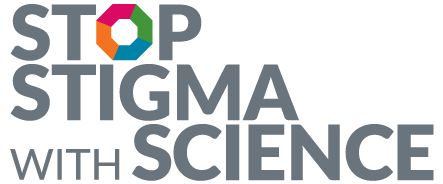
Visit
BBRFoundation.org
and attend their monthly "Meet the Scientists" webinars at no cost:
Tuesday, 14-Mar-2017:
1 p.m.
(on-line webinar):
"Prevention of Depression
"
Michael Berk, Ph.D., MBBCH, MMED, FF(Psych)SA, FRANCZP
Deakin University, Australia
Check out Brain&Behavior Foundation's TOP 10 Advancements & Breakthroughs by Foundation Grantees in 2016:
click here
Visit
PsychU.org and attend a virtual forum at no cost (simply create a free login to participate and view past research and previously recorded forums).
15-Mar at 9:00 a.m.: "Treatment of Schizophrenia: Focus on PsychoPharmacology and Adherence".
27-Mar at 9:00 a.m.: "Impending Signs of Psychosis: Focus on Caregiver and Patient Engagement".
18-Apr at 9:00 a.m.: "Engaged Practice: Methods for Managing the Complexity of BiPolar Disorder and Related Conditions".
Visit
NAMI.org and scroll to the bottom of the page where you can learn more about specific illnesses.
Psycho-education is a core to recovery.
This means psycho-education
for family/friends and for our loved ones. We are pleased with the response by the community regarding the donation to the El Dorado County library.
Pick up a copy of our recommended reading booklist and website list at our NAMI Family Support Group meeting or simply click
here
.
Visit El Dorado County library or your local community college library - many fantastic books featuring mental health and/or substance abuse topics.
============================================================================================
Barton Health has identified the need for additional mental health services and continues to take action to provide extra support for patients and the South Lake Tahoe community.
They have 3 local psychiatrists: Dr. Zelan, Dr. Protell, and Dr. Rupp plus Telemedicine and Psychologists and also licensed Social Workers - each focused on improving mental health.
Where can you find help in South Lake Tahoe and surrounding area?
Here is the
link
to the The Health & Wellness portion of the Barton community
directory (starting on page 49.) Notice all the support groups and counseling services - many health and wellness programs available. You may also pick up a hard-copy of this directory at our NAMI Support Group meeting in South Lake Tahoe, at a Mental Health kiosk, or at Barton Hospital.
Have you been wait-listed? We need to close the gap on long wait-lists....
Good news: New mental health providers have arrived in South Lake Tahoe bringing a new continuum of care without a wait-list (as of this publication date.)

- Matthew Wong Psychologist | M.A., Psy.D PSY#26365 415-806-0275 South Lake Tahoe appointments Mondays and Fridays available for children/teens/adults mild to moderate; broad range of therapies. Psychological testing and intellectual disability assessments.
- A Balanced Life added 2 new therapists specializing in co-occurring addiction/mental-health issues:
530-544-1748
"Schedule an appointment soon before provider calendars are filled.
Mental health clinicians have far smaller caseloads than primary care physicians.
With psycho-therapy treatment can last for an extended period which means often people pick a standing time-slot.
Experts recommend not delaying treatment (even if you are wait listed for someone you really like.)
Recommend getting to treatment promptly.
The sooner you begin psycho-therapy - the sooner your journey to recovery will begin. "
Take care of you and your loved ones"
NAMI Leader - NAMI El Dorado County
Check out
Barton's mental health page
which outlines strategic priorities and accomplishments and more... Have you checked out all the community classes available including smoking cessation (Barton) or parenting classes (FKCE)?
=================================================================================================
Lake Tahoe Community College most utilized Mental Health Kiosk followed by Barton Community Health
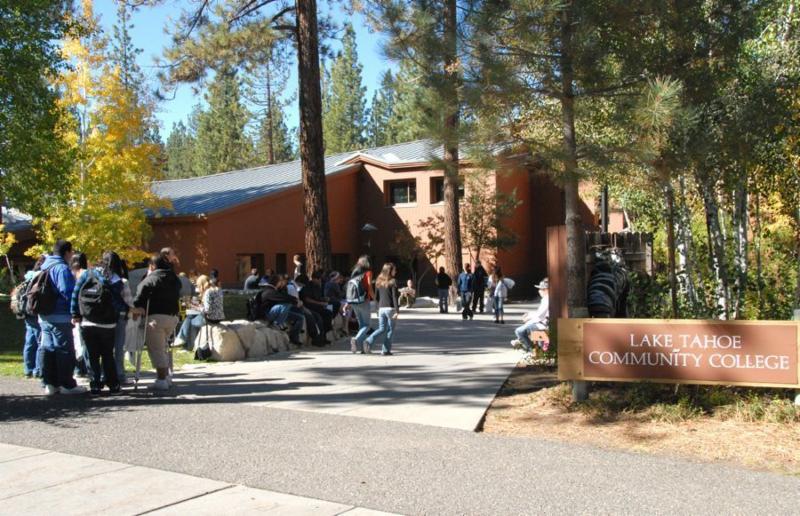
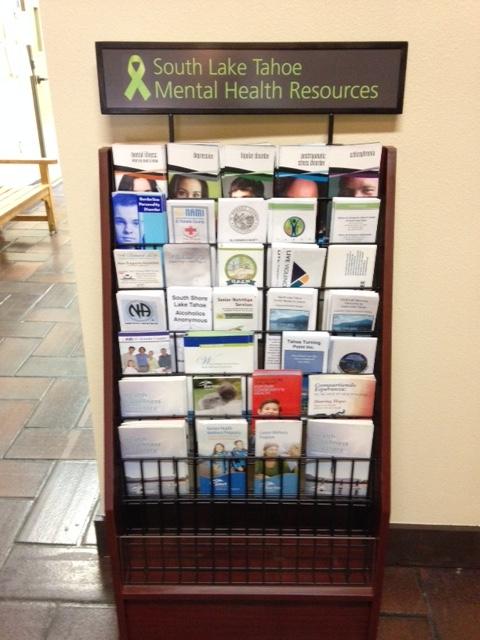 Six locations
hosting Mental Health kiosks for our South Lake Tahoe community.
Six locations
hosting Mental Health kiosks for our South Lake Tahoe community.
-
Lake Tahoe Community College
(next to college bookstore)
- Barton Emergency Room
(2170 South Ave)
- Barton Family Medicine
(1090 Third St)
- Barton Community Health Center
(2201 South Ave)
- El Dorado County Probation/Sheriff
(1360 Johnson Blvd)
- El Dorado County Library
(1000 Rufus Allen Road)
 Over 2,300 brochures have been provided to the community in South Lake Tahoe since the kiosks were established in May, 2017...wow! Thank you Barton for funding the kiosks. Thank you Marsha for your volunteerism in designing their look, maintaining inventories and reporting utilization. Thank you community providers of services/supports for proactive collaboration in making these kiosks an on-going success.
Mental Health Resource Kiosks will soon be available on the West Slope because of a generous grant from the El Dorado Community Foundation. Plans are underway for placing kiosks at the Folsom Lake College - El Dorado Center and Cameron Park Community College to start. Others locations will be posted.
==================================================================================================
Ask your doctor
about Long-lasting
Injectables
 "Multiple families across our county have approached me to let us know the good news that their loved one has vastly improved since switching to injectables. We were out to breakfast last week when a caring Dad that graduated our NAMI Family-to-Family class in October came up and reported how well their loved one is doing since switching to Abilify (his loved one is also now working full time and living independently.) Every body is different so it is important to proactively discuss medication options with your treatment provider(s) and monitor side effects. "Multiple families across our county have approached me to let us know the good news that their loved one has vastly improved since switching to injectables. We were out to breakfast last week when a caring Dad that graduated our NAMI Family-to-Family class in October came up and reported how well their loved one is doing since switching to Abilify (his loved one is also now working full time and living independently.) Every body is different so it is important to proactively discuss medication options with your treatment provider(s) and monitor side effects.
NAMI El Dorado County Instructor
Long-lasting injectable administration are available through Barton Psychiatry (through a medical technician on-site); El Dorado County Mental Health (monthly); and Safeway Specialty Pharmacy in South Lake Tahoe and on the Western Slope.
We continue to educate families and friends about the availability and benefits of long-lasting injectables for those that have this option available.
Safeway provides a
free case manager service
(out of their Idaho call center) where they call and remind our loved ones when their injection is due, schedule the appointment, and help the process run smoothly.
Call 1-877 466-8028 and request speaking with an injectables case management team member.
This is a great convenience since many family members were having to pick up the medication and bring it to a medical technician outside of the pharmacy setting to receiving the injection. Now, it's one stop shopping.
|
========================================================================
NAMI El Dorado County outreach continues
NAMI El Dorado County continues to provide mental health education and awareness at various county and school health fairs, back-to-school events, and at clubs and other organizations. If your club, place of worship, or organization is interested in a 20, 60, or 120 minute mental health awareness overview please contact us.
West Slope: Jan 530-677-2676 or in South Lake Tahoe: Jeanne 650-740-5776
========================================================================
Current and upcoming classes, events and support groups:
|
 |
NAMI El Dorado Board of Directors Meeting - First Tuesday
every other month:
Feb 7, April 4; June 6; Aug 1; Oct 3; Dec 5, 2017.
Our meeting place will be changing due to the renovation at the County Government Center. Check the April newsletter for new place and directions.
El Dorado County Mental Health Commission:
Regular meeting of the Commission on March 22nd.
Health and Human Services Agency, 3057 Briw Rd., Sierra Room, Placerville, CA - and in South Lake Tahoe at the Wellness Center 1900 Lake Tahoe Blvd (video-teleconference.) - 5:00 pm
These meetings are
open to the public and are an important interface between the community and our county mental health system. Concerns and stories from the community are welcome during public comment time at the start of each meeting. While your concerns may not be discussed unless it is already an item on the agenda, your input as part of the public is valued and will be addressed at a later meeting.
Are you interested in becoming a member of the Mental Health Commission?
Let your voice be
heard in El Dorado County.
===============================================================================================
NAMI Family Support Meetings - 3 in El Dorado County!
NAMI Family Support groups are a monthly meeting of caregivers of individuals with a mental illness where family members can talk frankly about their challenges and help one another through their learned wisdom.
These support groups group provide empathetic support for those dealing with crisis and the emotional overload that is so much a part of having someone you love living with a mental illness. You can come, share or just listen, get useful practical information, or a hug from others who understand. This group is for families and friends of those living with a mental illness. We hope to see you there. No cost to attend.
South Lake Tahoe NAMI Family Support Group
This group meets on the 2nd Tuesday of every month
Location: South Lake Tahoe Library located at 1000 Rufus Allen Road from 6 p.m. - 7:30 p.m.
2017 dates:
Mar. 14, April 10, May8, June 12, July 11, Aug. 15, Sept. 12, Oct. 10, Nov. 14, Dec. 12
The West Slope NAMI Family Support Group
This group meets the 1st Tuesday monthly at 7:00 p.m. following the monthly NAMI Board Meeting in Placerville at the Government Center, Fair Lane, BOS Building A, Conference Room A, Placerville, CA
We will be moving after the March Support Group meeting. Our new venue will be posted in the April newsletter.
Group facilitator: Jan 530-677-2676
2017 dates: Mar. 7, April 4, May 2, June 6, July 4, Aug. 1, Sept. 5, Oct. 3, Nov. 7, Dec. 5.
El Dorado Hills NAMI Family Support Group
This group meets the
3rd Monday of each month.
Location: EDH Fire Dept, Station 85, 1050 Wilson Blvd. El Dorado Hills.
Conference Room: 5:30 - 7:00 p.m.
2017 dates: Mar. 20, April 17, May 15, June 19, July 17, Aug. 21, Sept. 18, Oct. 16, Nov. 20, Dec. 18
El Dorado County. If you have recently, or in the past, taken one of our classes, please let others in the community know how valuable the experience was. Your recommendations help to get the word out. Too often we hear, "I wish I had known about this class years ago!".
NAMI Family-to-Family
is on the coveted list of SAMSHA (Substance Abuse and Mental Health Administration) Evidence-based recovery models. Visit SAMSHA.gov to learn more about SAMSHA. We will be offering Family-to-Family and Basics, this year. The classes are posted at NAMI.org and in this monthly newsletter when they are scheduled. We are happy to take your name and contact information if you wish to reserve space. Phone numbers are given below.
"I learned more in NAMI Family-to-Family than in the past 20 years working as a nurse across a variety of hospitals."
Anonymous graduate of NAMI F2F
"You tossed our family a life-rope and we held on. Our loved one is now doing well. This course saved our family and our marriage."
Anonymous graduate F2F
"I wish we knew about this course years ago...we cannot help but wonder how much better our loved one would be doing had we been introduced to NAMI sooner."
Anonymous graduate NAMI F2F

NAMI Spanish speaking Warm-line in Tahoe Basin is open for calls
Thanks to Marisol Mariche, NAMI Family-to-Family graduate and certified NAMI Family Support Group Facilitator and NAMI volunteer and certified in Suicide Prevention and Mental Health First Aide amongst many other things including social-psychology. Our first Spanish outreach is coming Spring 2017 to SLT. Details to follow.
NAMI El Dorado County: Spanish Warm-line serving Tahoe Basin: 1-775-407-0306
NAMI Family-to-Family In South Lake Tahoe:
NAMI Family-to-Family education
in South Lake Tahoe:
16-Sep-2017 through 21-Oct-2017 from 9:00 a.m. - 3:00 p.m.
6 consecutive Saturdays <-- accepting sign-ups now for 2017
Call Jeanne at 650-740-5776 to register
NAMI Classes on the West Slope:
NAMI Family-to-Family Education Spring Class
starts March 28th, on 12 consecutive Tuesday evenings. Call Jan at(530) 677-2676 or Maureen (530) 350-8080 to put your name on the wait-list. The class is filling fast, so call soon.
NAMI Basics - This class is for families with children/adolescents with behavioral/mental health conditions. This 6 week class will provide resources and coping strategies for families.
The class will meet for 6 consecutive Wednesdays at 6:30-9:00 beginning March 22.
All NAMI programs are provided to the community at
no cost to the participants and are offered once or twice a year. Please call to put your name and contact information on our list for future classes.
===============================================================================================
Local Happenings
Reflections of Life and Loss (South Lake Tahoe) 
Second and Fourth Thursdays monthly 12 p.m. - 1:30 p.m.
Barton Hospice encourages people who have experienced the loss of a loved one or have endured a significant, life-altering event to attend. This group helps teach attendees how to cope with certain situations and encourages emotional connections with others. Support and bereavement groups allow people to release emotions they may otherwise keep to themselves. It can improve a participant's mood and decrease psychological distress.
Location: Barton Hospice
2092 Lake Tahoe Blvd, Suite 600
South Lake Tahoe, CA
530-543-5592
Friends for Survival (Western Slope)
Marshall Medical Center
Meetings are held monthly. For more information, contact Walt or Leona Narr at 530-647-8864.
Bipolar Insights - in Placerville, CA
Weekly Class * Every Monday at 7 pm
Green Valley Community Church
3500 Missouri Flat Road, Room 304 in Placerville, CA 95667
$5 per person per class
Special Events * Tuesday's
Marshall Medical Building
681 Main Street, 1st Floor Common Room in Placerville, CA 95667
Check the website for dates and events
Bipolar Insights / Mental Health Education Center
Lake Tahoe Community College - free personal career planning and workforce development opportunities. Contact Alexis Foley at LTCC. English Language labs - contact Alexis
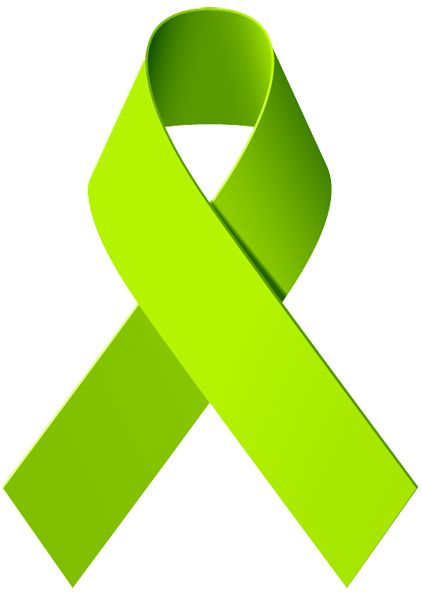
Teen Support Group (no cost to attend) - A Balanced Life
A Balanced Life:
2100 Eloise, South Lake Tahoe, CA 96150
Call to learn more: 530-544-1748
Therapists skilled in co-occurring addiction now available
(for adults/teens)
ATTENTION ALL CAREGIVERS & PARENTS: Top quality class in Family Resilience! Protect your children - learn how to give them resilience to work through life's twists and turns. 
Free breakfast and lunch thanks to a generous grant in support of educating all parents with children ages 0 to 18! Seats are limited - sign up early: 530-544-1748 - 5 Saturdays starting 22-April from 9 a.m. - 12:30 p.m.

ARE YOU STRUGGLING WITH AN ADDICTION OF ANY KIND?
SMARTS Recovery held at: A Balanced Life ($3 donation requested)
Call to learn more: 530-544-1748
A
science-based addiction recovery support group -
no cost - where participants learn self-empowering techniques to aid their recovery through mutual-help face-to-face and online meetings and services.
More than 1/2 of those living with mental health have a co-occurring addiction
(work, drug, gambling, food, sex, alcohol, social-media, etc).
SMART Recovery meetings are now in South Lake Tahoe at A Balanced Life
- Every Thursday, 6-7PM (on-going weekly; no cost but a $3.00 donation is suggested)
El Dorado County Mental Health - Wellness Centers

(Diamond Springs
and South Lake Tahoe)
Adult Outpatient Services Wellness Centers, 768 Pleasant Valley Rd., Diamond Springs and 1360 Johnson Blvd., South Lake Tahoe,
continue to provide a safe, understanding, and recovery oriented place, Monday through Friday afternoons.
Wellness Centers are migrating towards a Peer-Led support group model; some are co-lead by licensed therapists and many are lead by Peers.
FIRST EPISODE PSYCHOSIS PROGRAM IS AVAILABLE AND OPEN TO THE PUBLIC  (not just Medi-Cal insured individuals.) Individuals with other types of insurance welcome as this program is funded by a grant. Call 530-573-7970 El Dorado County Behavioral Health to learn more. (not just Medi-Cal insured individuals.) Individuals with other types of insurance welcome as this program is funded by a grant. Call 530-573-7970 El Dorado County Behavioral Health to learn more.
Drop in hours are from 1:00 to 4:00 Monday through Friday, for people to socialize and participate in a wide assortment of fun and therapeutic groups. Group schedules are available at the Wellness Centers and may include Dialectal Behavior Therapy, Anger Management, Conversation Skills, Healthy Pleasures, Smoking Cessation, Symptoms without Stigma, Mindfulness, Coping Skills, Stress/Anxiety Reduction, Seeking Safety, and others. Some of these groups are available on a referral basis only, while other groups, such as Art, Physical Activity, Mindfulness, Coping Strategies, etc. are open to all. Check current schedule at the Centers.
FKCE: Foster Kinship Continuing Education: provides caregiver and parenting classes at no cost at the local community colleges.
===============================================================================
PLEASE SUPPORT NAMI EL DORADO COUNTY
If you are one of the over 500 people who called, attended, or participated in a NAMI El Dorado County program this year, you are familiar with with how much it helps to know you are not alone. Please consider providing a tax-deductable donation to help us continue this important work in our community.
Your Donations Are Needed and Greatly Appreciated!
Every dollar donated goes
directly to our education, support, and advocacy efforts.
We are 100% voluntary non-profit
and are comprised of individuals and families with lived experience - working hard every day to crush stigma and improve services and supports in El Dorado County.
Your donations; volunteer time, items, or money are appreciated and used in our community to benefit and improve the lives of families and individuals living with mental illness.
Let us know if you would like to make a special donation
"in memory of" or
"in honor of" someone special or
"in support of our volunteerism in the community".
Please add a note to your check (or email [email protected] after using PayPal) NAMI El Dorado County covers the Western Slope and South Lake Tahoe - we are one affiliate.
Donations by check:
Please make checks payable to:
"NAMI El Dorado County",
PO Box 393, El Dorado, CA 95623
===========================================================================================
Shopping?
Use AMAZON SMILE and select NAMI El Dorado County
Will you please share this with your friends and family? You Shop, Amazon gives to NAMI El Dorado County. 1/2% of all your purchase amounts will then go to NAMI El Dorado County
==========================================================================================
Membership in NAMI has benefits!
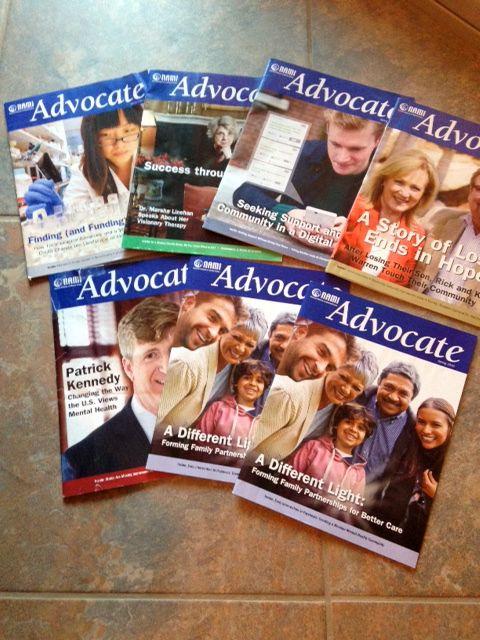
Don't miss out on the excellent publications, NAMI Advocate Magazine (3 times per year) and the Voice newsletter, as well as online access to informative and thoughtful articles and blogs. You will also have the option to receive advocacy alerts where you can advocate with your legislature with a single click.
Memberships can be made or renewed by mail to
NAMI El Dorado County, P.O. Box 393, El Dorado, CA 95623.
You can also join online. Go to
www.nami.org (select
NAMI El Dorado County Western Slope and South Lake Tahoe
when you apply for membership.) A full membership is $35.00. Discounted "Open Door" memberships are now available on-line. NOTE: If you live in bordering Nevada addresses such as Zephyr Cove or Stateline, NV or any areas outside of El Dorado County including other states with loved ones or caregivers here - we welcome you to join our affiliate. Unfortunately the NAMI on-line system is not set-up to easily process a NV address (so please mail in your membership request and we will manually process those that live in zip codes outside of El Dorado County.) Thank you!
New Membership Structure Coming 1-July 2017:
Household Membership $60 (new); Regular Membership $40; Open Door Membership $5
NOTE: The "open door rate" is currently $3.00/year and is now available on-line
===========================================================================================
NAMI El Dorado County - FACEBOOK
Share our Facebook page with all your friends
Please "like" our page on Facebook or add your perspectives to our page!
drop-box (file folder) of our local resources, interesting posts, and photos.
As a reminder there is a national NAMI website at
www.nami.org,
===========================================================================================
Interested in Volunteering?
Use your personal passion to give back. We are looking for individuals with an interest and skills in teaching, fundraising, organizational management, grant search and writing, and support group facilitation.
Giving back
and helping others is not only a gift but an opportunity for
personal
growth and, let's face it, a chance to feel good.
Call Jan on the Western Slope at 530-306-7710; Call Jeanne in South Lake Tahoe at 650-740-5776.
Jan Melnicoe, President
NAMI El Dorado County - Western Slope and South Lake Tahoe
(530) 306-7710
|
|
|
|
|